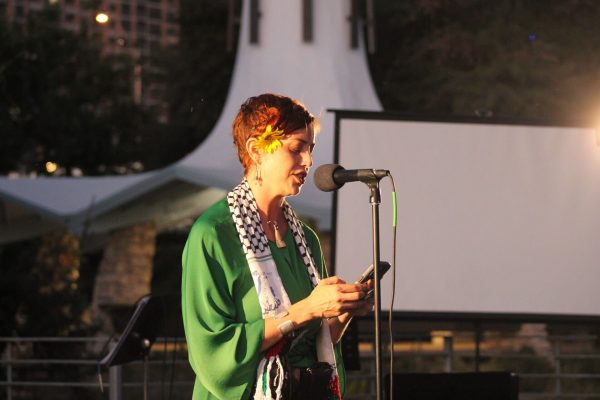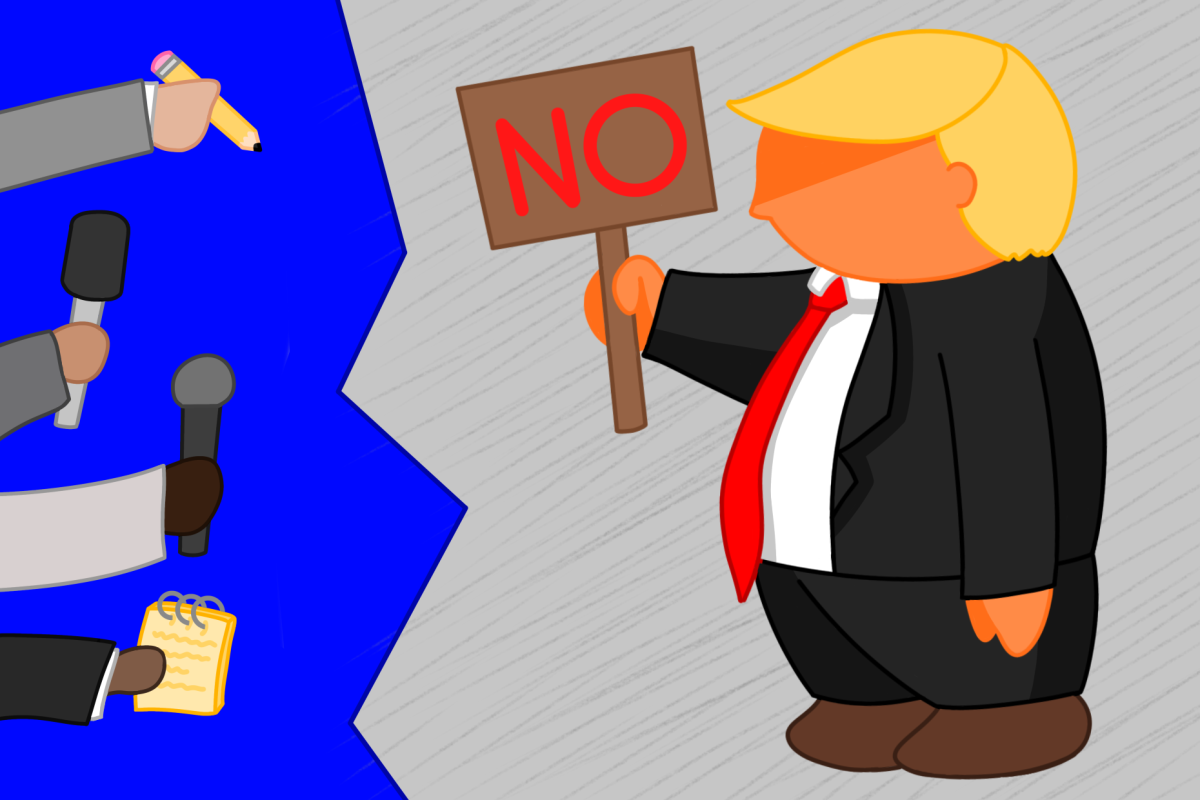The setting sun over Auditorium Shores set aglow hundreds of photos along the gravel path, the innocent faces of Gazan children memorialized in a heartfelt vigil on Oct. 8. Flowers, flickering candles, baby shoes and stuffed animals accompanied their memories.
Marking two years of the genocide in Gaza, the Austin for Palestine Coalition and the Party for Socialism and Liberation coordinated a candlelit night of poetry, music and mourning by the waterside. The multi-faith demonstration included prayers from local Muslim, Christian and Jewish organizations to honor the 67,000 Palestinians killed by Israel. Under the weight of global inaction, Austinites focused on the importance of lasting peace and an end to the Israeli occupation.
“We gather in the shadows of two full years of madness,” said Mustafa Faris, a Palestinian American and member of PSL. “Waking up every day to videos of more Palestinians murdered in our name with our tax dollars, with barely a peep from the governments of the world.”
Alongside the large memorial, organizers erected the Falasteen Street Museum to present the history of Palestine and decades of Israeli occupation. Attendees honored the Palestinians who have been lost by writing their names on the leaves of a paper olive tree, a symbol of their rootedness in the land.
As night fell, speakers like Faris took the stage to speak about the genocide. An independent UN Human Rights commission recently determined that Israel is committing genocide in Gaza, following the lead of countless international human rights organizations and genocide scholars with the same consensus. The UN report states that Israel committed four out of the five genocidal acts outlined in the 1948 Genocide Convention. It especially highlighted Israel’s deliberate killing, displacement and starvation of civilians.
Still, most American politicians and media refrain from calling it a genocide.

“How do sane people watch innocent civilians be torn apart and murdered? Grandparents, children, fathers, mothers … How do we watch that happen and not need to act?” said Rachelle Wilson, who performed her poetry at the vigil.
Wilson’s poem “Dear Sister,” cut despairingly into the night, recounting the pleas of her friend Sujud in Gaza, who has a 3-year-old daughter.
“I’m sorry to bother you dear sister. We haven’t eaten in two days. We are starving. A bag of flour costs $500 dollars,” Wilson recited on the stage.
Faris, too, told heart-shattering stories about life as a Palestinian. He shared that his uncle was imprisoned and tortured for months as a boy for throwing stones. When his grandfather was on his deathbed, Faris said an Israeli soldier refused him entry to the country, despite his American passport.
“This is the extent of how occupation affects every one of us Palestinians,” Faris said. “It even steals our goodbyes.”
After more poems, prayers, and a moment of silence, the Viva Palestina Orchestra took the stage. Founded in the fall of 2023 after the start of Israel’s siege, the orchestra brings awareness to the genocide through Palestinian folk music. They’ve spent the past two years performing all around the state raising over $115,000 in aid to Gaza.
“Palestinian music has a history of resistance and also fighting colonization and oppression,” said Director Sari Andoni.
The traditional tunes, some dating back hundreds of years, uplifted people’s spirits with themes of liberation. Attendees broke into song and dance, forming a circle to perform the Palestinian dabke as the vigil came to a close.
Although attendees were hopeful about breaking news of a potential ceasefire that night, many remain fearful that the cycle of occupation, oppression and ethnic cleansing will continue if key issues aren’t addressed. Additionally, the Gaza Strip is still under Israeli blockade with little aid coming in and out.
“What has been happening to the Palestinians has been happening for over 70 years at this point,” said Lisa Debruyne, an organizer for PSL and the Austin for Palestine Coalition. “We have to continue this fight. We can’t give in to the misery and sadness.”
Many Austinites expressed the need for safety and equal rights not only in Gaza but the West Bank, where over a thousand Palestinians have been killed in the past two years. They emphasized that systems of repression and surveillance used against Palestinians are currently being adopted in the U.S.
“I really believe that Palestinian liberation is deeply tied into global liberation,” Wilson said. “And if we fail to help Palestine liberate itself, then we will all eventually pay the price for that.”

































